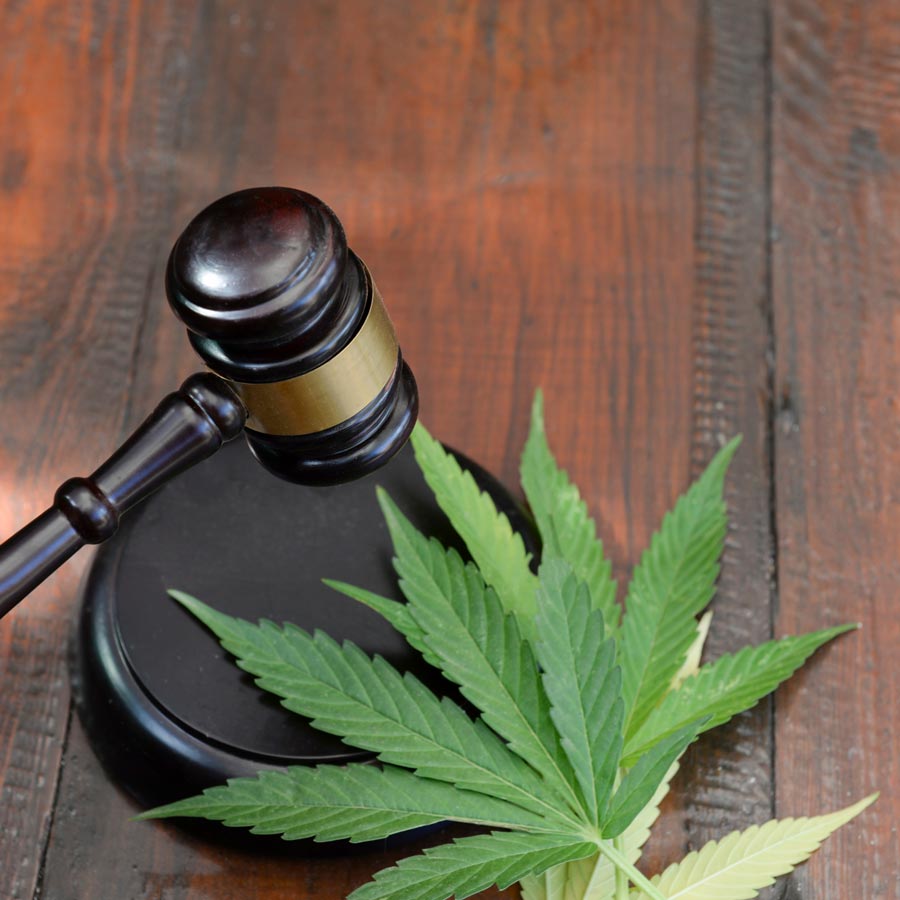
Over the years, there have been calls for cannabis to be legalised or at least downgraded in its classification from the current Class B to Class C (the least harmful). By contrast, there have also been demands, especially recently, that its classification be upgraded to Class A (the most harmful). But how have public attitudes shifted?
Way back in 1969, a Home Office advisory committee recommended relaxing the laws on possession of cannabis. The government rejected the idea and an NOP poll at the time strongly supported its decision: a huge majority (88%) disapproved of the recommendation. This disapproval was as strong in the youngest age group (21–34) as in the total sample.
Perhaps surprisingly, this support for the status quo remained fairly consistent for many years, whatever the precise nature of the question. In 1972, for example, NOP found that 83% rejected the idea of allowing cannabis to be smoked in private; 16 years later, a MORI poll showed that 88% were opposed to the legalisation of the drug. Some time after this, the picture started to change and in 1996, MORI found that only 58% still opposed its legalisation.
The following year, MORI reported that as many as 64% supported the idea of a parliamentary debate on the legalisation of cannabis. Most of the sample (55%) agreed that the police spent too much time prosecuting cannabis users when they should be clamping down harder on more dangerous drugs, although on the other hand, a similarly slim majority (53%) believed that using cannabis led to the use of harder drugs. Potential medicinal uses for cannabis appear to have started to influence attitudes around this time. It is also interesting to note that a second MORI poll in the same year found one in eight (13%) of the population had used cannabis in the past year and over a quarter (29%) had ‘tried it at some time’.
Despite some shifts in opinion, however, by 2013 the majority of the population (60%) still felt the law should remain as it was. Meanwhile, since 2019 YouGov has tracked attitudes, offering respondents three options: retention of the current law, downgrading possession of soft drugs such as cannabis to a minor rather than a criminal offence (‘decriminalisation’), and full legalisation of the sale and possession of soft drugs. Support for full legalisation of such drugs has ranged over this period from 35% down to 27%; the majority (65%) continue to believe that they should remain illegal, although nearly half of these feel the offence should be downgraded.
Source:
NOP 1969: https://amsr.contentdm.oclc.org/digital/collection/NOP_Reports/id/1985/rec/34
NOP 1972: https://amsr.contentdm.oclc.org/digital/collection/NOP_Reports/id/2823/rec/50
MORI 1988: https://amsr.contentdm.oclc.org/digital/collection/MORI-BPO/id/123/rec/4
MORI 1996: https://amsr.contentdm.oclc.org/digital/collection/MORI-BPO/id/191/rec/24
MORI 1997: https://amsr.contentdm.oclc.org/digital/collection/MORI-BPO/id/18/rec/1
MORI 1997 (2): https://amsr.contentdm.oclc.org/digital/collection/MORI-BPO/id/1048/rec/19
MORI 2013: https://amsr.contentdm.oclc.org/digital/collection/p21050coll1/id/2366/rec/22
YouGov 2019–25: Criminalisation of soft drugs e.g. cannabis
Contributed by Nick Tanner
Date posted: 29th August 2025
